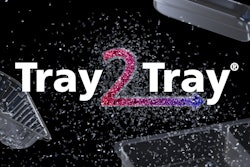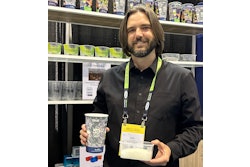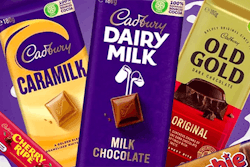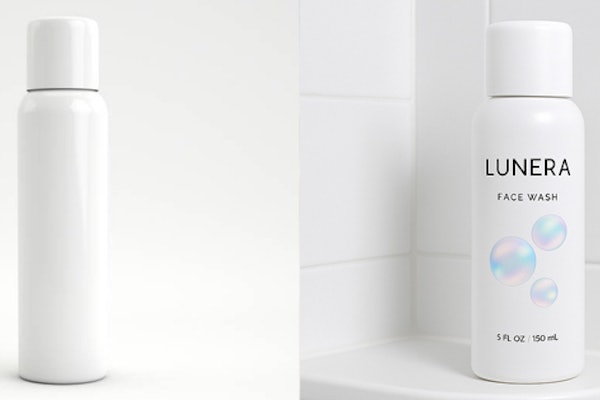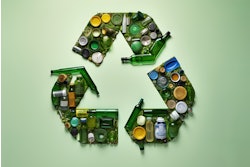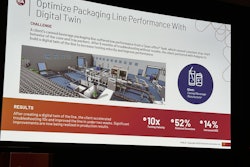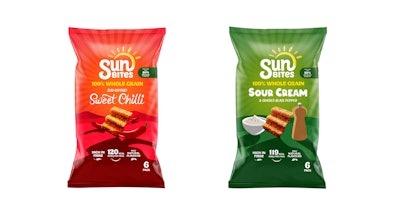
A prime example of the scale of collaboration that’s required today to drive sustainable packaging innovation is a new snack bag that can be found on shelves in the U.K. and Ireland for PepsiCo Europe’s Walkers Sunbites chip brand. Introduced in late 2023, the new snack bag is made from 50% recycled content from chemical recycling technology and is the result of a partnership between six supply chain partners: Green Dot, Plastic Energy, Ineos Olefins & Polymers Europe, Irplast, and Amcor, along with PepsiCo.
The launch moves PepsiCo Europe closer to fulfilling its PepsiCo Positive (pep+) commitment to eliminate virgin petroleum-based plastic in its crisps and snack bags by 2030. Specifically, PepsiCo says the move to the new material will eliminate 200 metric tons of fossil-based plastic, based on 2023 U.K. annual sales volumes of Sunbites, across the snack packaging by end of 2025.
The pivotal piece of technology that enables the production of the certified circular packaging is Plastic Energy’s patented Thermal Anaerobic Conversion (TAC). Using this patented pyrolysis process, Plastic Energy heats plastic waste until it becomes a plastic melt, then pumps it into its reactors. There, the plastic melt is further heated in the absence of oxygen and changes from a liquid to a vapor. Condensed vapors are then refined through a series of separators and filtration steps, creating a synthetic pyrolysis oil, branded Tacoil by Plastic Energy, that is then used as a feedstock for new plastics.
According to Plastic Energy, results of an LCA of its process show that to produce 1 kg of low-density PE, chemical recycling emits 0.86 kg CO2e, or 55%, fewer emissions than producing 1 kg of plastic from fossil origin. “Compared to virgin (fossil) LDPE plastic, chemically recycled LDPE has lower climate change and resource depletion scores,” the company says.
Tacoil is made from low-quality, mixed-plastic polyolefin waste, including high-density PE, LDPE, polystyrene, and PP that would otherwise be incinerated, sent to landfill, or downcycled. This includes multilayer flexible films that can’t be recycled, as well as monolayer films that, while recyclable, are oftentimes used for non-packaging applications such as synthetic lumber for decking or park benches.
GreenDot, which began as an EPR licensor in Europe and has since expanded its capabilities to collecting, sorting, and mechanically recycling packaging waste, is procuring the plastic waste feedstock for the Sunbites package. In May 2024, GreenDot announced that PepsiCo would be supporting its investment in new recycling solutions, including advanced recycling facilities.
Said PepsiCo Europe Chief Sustainability Officer Archana Jagannathan at the time of the announcement, “The partnership is critical to scaling our operations and working together towards our shared goal of creating a circular economy for packaging. Advanced and mechanical recycling are part of a broader suite of recycling we are leveraging to bring us one step closer to this goal. Closing the loop between plastic and recycled content is a central part of our PepsiCo Positive agenda. We aim to reduce the waste we send to landfill in our direct operations and across our value chain.”
 | Read about another package that’s using Plastic Energy’s Tacoil in this related article, “KIND Bar Wrap Closes the Loop” |
For the just-released Sunbites packaging, after GreenDot supplies the plastic waste feedstock to Plastic Energy and following Plastic Energy’s conversion of the material into Tacoil, global chemical company Ineos uses the Tacoil as an alternative to fossil feedstock to produce recycled propylene, before turning it into virgin-quality rPP resin. The resin is then used by Irplast to produce BOPP film, which is finally converted by Amcor into Sunbites flexible film packaging. The recycled polymer content of the packaging is ISCC-Plus certified
Upon the launch of the new packaging, PepsiCo UK & Ireland Sustainable Packaging Lead Gareth Callan said, “The Sunbites transformation marks our ongoing commitment to offering products that are better for both people and planet. We’re proud of the progress we’ve made so far to reduce the fossil-based plastic we use and meet demand for healthier snacking options without sacrificing the taste.” PW


